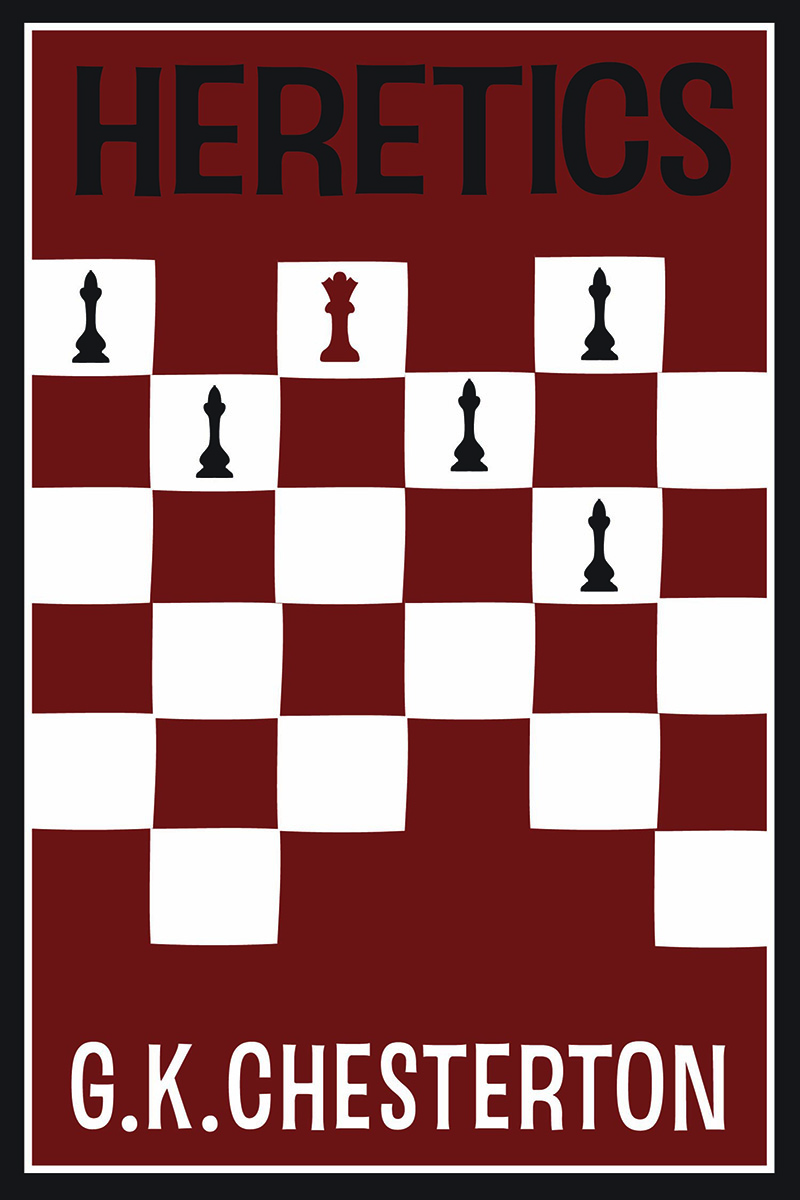G.K. Chesterton
Standing six foot, four inches tall, and weighing 21 stone, G.K. Chesterton was a man of striking appearance; and all the more so for his chosen uniform of cape, large hat, swordstick and cigar. A prolific writer, he regarded himself primarily as a journalist; but also wrote poetry, philosophy, biography, detective fiction, Christian apologetics – and fantasy. For as he once said: ‘Fairy tales are more than true: not because they tell us dragons exist, but because they tell us dragons can be beaten.’
Chesterton was rated an under-achiever by his teachers, but George Bernard Shaw, – his ‘friendly enemy’ with whom he often clashed – called him ‘a man of colossal genius.’ He married Frances Blogg in 1901, and remained married for the rest of his life. A secretive man and inclined to brooding silences, Chesterton was passionate in his loves and hates, and busied himself with opinions rather than feelings. Fascinated by the occult in his youth, Christianity played an increasingly important part in his life, and he wrote the biography of St Francis of Assisi in 1922, shortly after converting to Roman Catholicism.
His choice of clothes revealed a man who liked attention; but he also displayed great reserves of will power, which he directed towards his chosen goals. Using paradox and laughter as weapons – he was called the ‘Prince of Paradox’ by Time magazine – his writing was a constant assault on complacent acceptance of conventional views. He railed against the dark side of English imperialism; and with his friend Hilaire Belloc, promoted the social system of ‘distributism’, which called for a greater sharing of wealth. When ‘The Times’ newspaper asked various leading figures of the day to say what was wrong with the world, Chesterton simply replied: ‘Dear Sirs, I am. Sincerely yours, GK Chesterton.’
For many years, he wrote a weekly piece for the Illustrated London News; and alongside his life of St Francis, he also wrote biographies of Charles Dickens, Thomas Aquinas and Robert Louis Stevenson. If his most famous fictional character was the detective Father Brown, his best known novel was ‘The Man who was Thursday’, published in 1908. Shot through with Christian allegory, Chesterton – who suffered depression all his life – wished this book to be an affirmation of goodness, to encourage both his family and himself away from their melancholic tendencies. As he wrote: ‘Man seems capable of great virtues, but not small virtues; capable of defying his torturers, but not of keeping his temper.’
1908 also saw the publication of ‘Orthodoxy’, his spiritual autobiography. Subtitled, ‘The romance of faith’, Chesterton declares that people need a life of ‘practical romance; the combination of something that is strange with something that is secure.’ ‘Everlasting Man’, his other overtly Christian work, appeared in 1925. It was seen as a rebuttal to HG Well’s ‘Outline of history’ and CS Lewis called the book, ‘the best defence of the full Christian position I know.’ Before both of these, however, in 1905, came ‘Heretics’ – in which Chesterton brought his wit and vigour to the works of leading writers of the time like Nietzsche, Shaw, Yeats, Ibsen and HG Wells. All three of these works are an attack on the perceived materialism and pessimism of his age. Chesterton, with his utopian ideals and sense of the big picture, could not abide pessimism.
GK Chesterton was a colourful and loved personality in a literary England which included George Bernard Shaw, Bertrand Russell and HG Wells, all of whom he enjoyed debating with. Known for both his wit and warmth, he wrote: ‘If the arms of a man could be a fiery circle embracing the whole world, I think I should be that man.’
Chesterton died on June 14th, 1936, in Beaconsfield where he had lived with his wife Frances since 1909. Monsignor Smith gave him the last rites, whilst Father McNabb ‘kissed the pen with which he’d written so many noble words.’ His secretary, Dorothy Collins, remained living in the area until her death in 1988. She was perhaps the child they never had.

